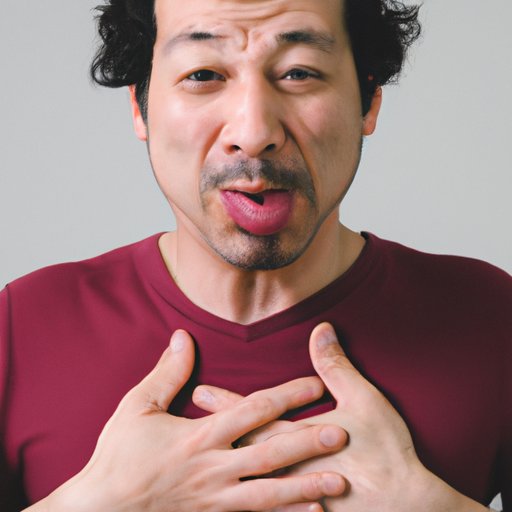Why Can’t I Stop Burping? Exploring the Causes, Coping Strategies, and Health Implications of Excessive Burping
Do you find yourself burping excessively, even when you haven’t eaten or drunk anything? You’re not alone. Burping is a common bodily function that our digestive tract uses to release excess air. However, excessive burping can be uncomfortable, embarrassing, and, in some cases, indicative of underlying health issues. In this article, we’ll explore the causes of excessive burping, effective coping strategies, and when to seek professional help.
Causes of Excessive Burping
There are various reasons why an individual might experience excessive burping. One of the most common causes is swallowing air. This can occur when eating or drinking too quickly, talking while eating, using a straw, or chewing gum. Additionally, drinking carbonated beverages or eating gas-producing foods like beans can cause excessive burping. Similarly, consuming spicy or acidic foods may irritate the digestive tract, leading to increased burping. Lastly, underlying health conditions like gastroesophageal reflux disease (GERD), peptic ulcer disease, or gallbladder disease can cause excessive burping.
Some foods and beverages that may trigger excessive burping include:
- Carbonated beverages
- Beer
- Chewing gum
- Beans
- Dairy products
- Spicy or acidic foods
It’s essential to understand why excessive burping can be problematic. In more severe cases, it can cause abdominal pain, bloating, and even difficulty breathing. Additionally, excessive burping may be a symptom of underlying health issues that require medical attention.
Coping with Excessive Burping
If you’re struggling with excessive burping, there are various coping strategies you can implement. One of the most effective is to slow down when eating. Take smaller bites and chew thoroughly before swallowing. This technique helps reduce air that may be trapped in the digestive tract and limit the amount of gas being produced.
Avoiding carbonated beverages and drinking water instead is another technique that can reduce the risk of excessive burping. Similarly, limiting the intake of gas-producing foods can help alleviate symptoms. Lastly, medication is available over-the-counter, which can help alleviate excessive burping. Reading the label and taking the medication as prescribed is essential to achieve the desired outcome effectively.
What Your Burps are Telling You
Burps come in different shapes and sizes and may vary depending on what an individual eats or drinks. Some burps may be indicative of specific health issues. For example, sour or acidic-smelling burps could signify GERD. Similarly, burping with chest pain or difficulty swallowing may indicate the presence of a digestive tract blockage.
Other types of burps that could indicate health issues include:
- A sour, rotten egg smell due to the presence of bacteria in the stomach
- Burping accompanied by nausea, vomiting, or diarrhea may indicate a foodborne illness or digestive disorder
- Burping with a sudden onset of chest pain or difficulty swallowing could be indicative of an emergency and may require immediate medical attention.
Home Remedies and Lifestyle Changes
Several natural remedies can help reduce excessive burping and provide relief to those suffering from the condition. One of the best remedies is to consume ginger, which boasts anti-inflammatory properties and can reduce inflammation in the digestive system.
Probiotics are also rich in healthy bacteria that promote optimal digestive health. Incorporating probiotics into the diet can reduce the risk of excessive burping and promote a healthy digestive tract.
Stress is a well-known trigger for digestive discomfort, including excessive burping. Therefore, stress-relieving activities like yoga, breathing exercises, and meditation can help alleviate burping caused by stress and anxiety.
Seeking Professional Help
If excessive burping persists or is indicative of underlying health issues, it’s essential to seek professional help. A doctor can conduct a physical exam and discuss a patient’s symptoms, medical history, and lifestyle to determine the cause of excessive burping. Additionally, certain diagnostic tests, such as an upper endoscopy or CT scan, can help confirm a diagnosis. Treatment methods may include medication to reduce acid-reflux or dietary modifications. Most importantly, seeking professional help can help identify underlying issues, prevent complications, and improve an individual’s quality of life.
Conclusion
Excessive burping can be uncomfortable, embarrassing, and indicative of underlying health issues. However, effective coping strategies, natural remedies, and professional help can provide relief and improve an individual’s quality of life. If you’re struggling with excessive burping, don’t hesitate to consult your doctor and implement natural remedies and coping strategies to take control of your health and wellbeing.
